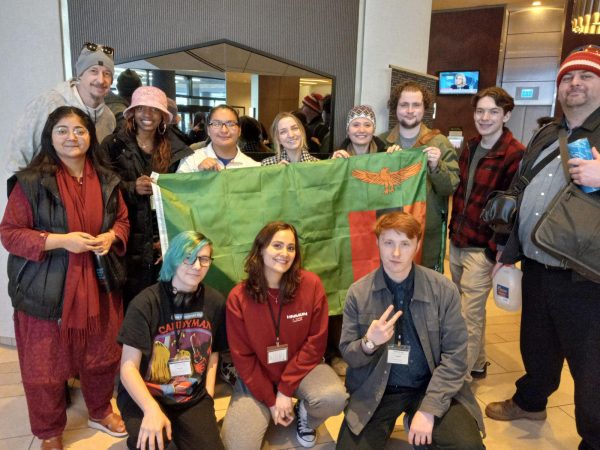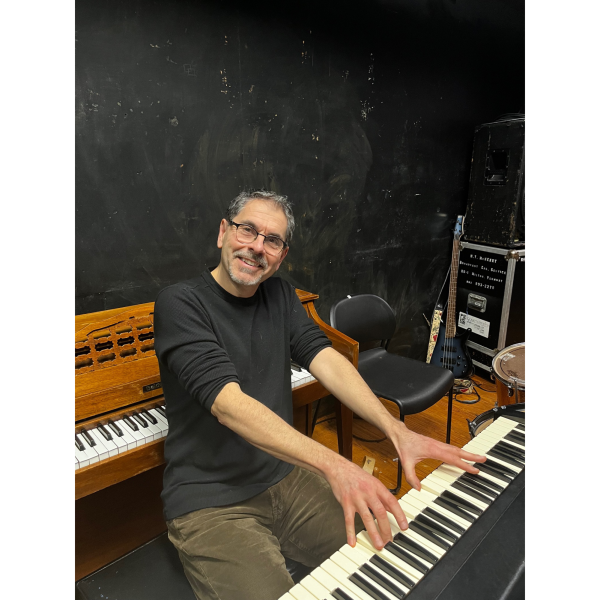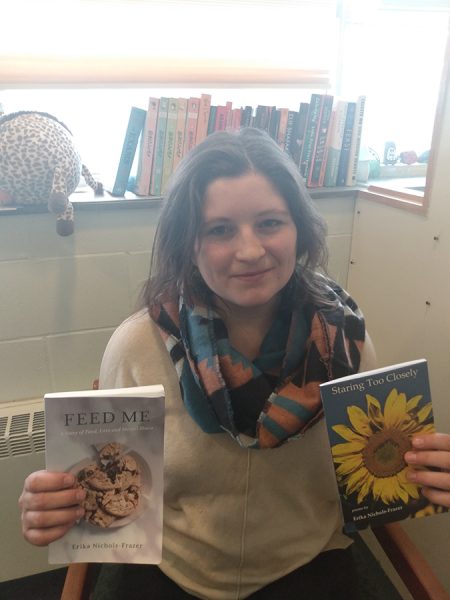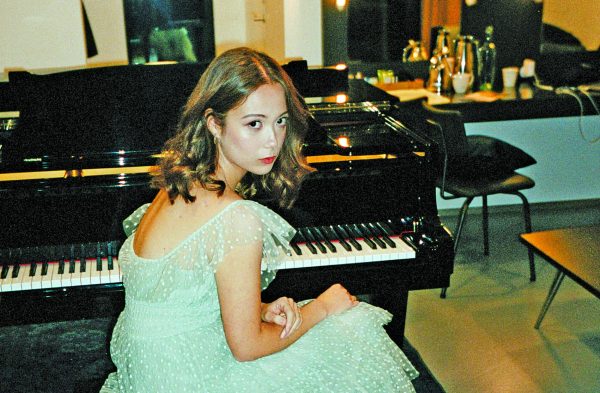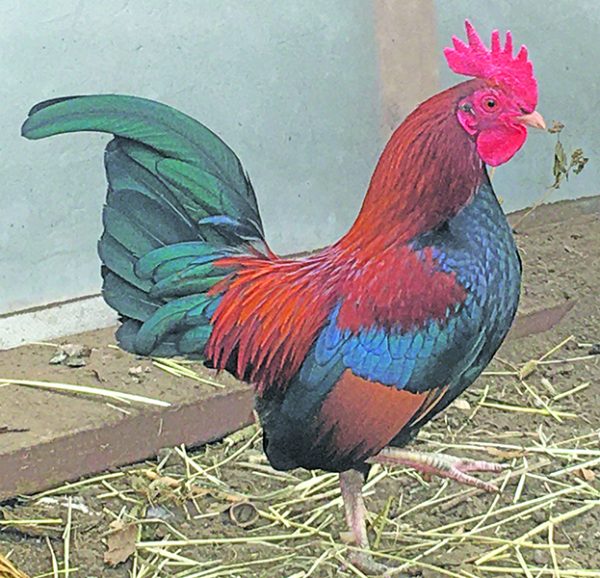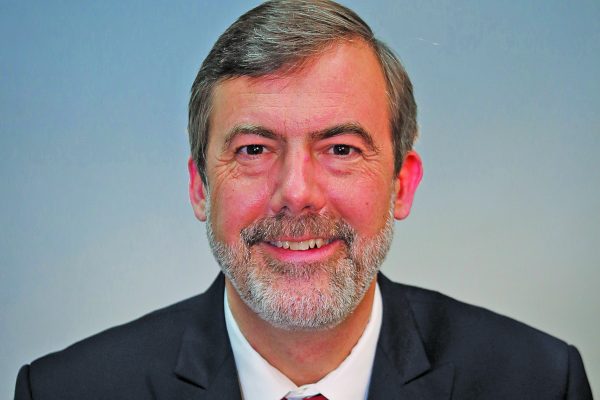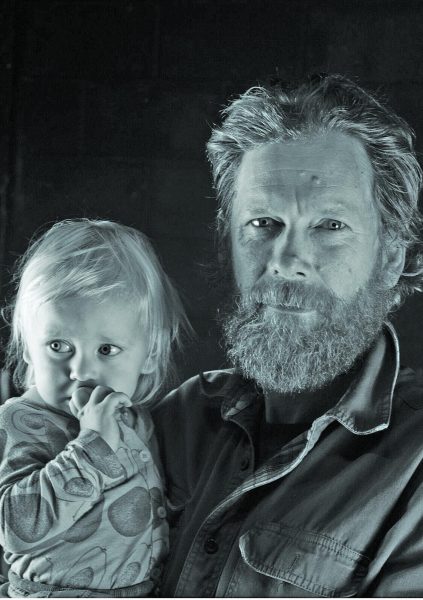Sgt. Taylor Urruela’s long journey home
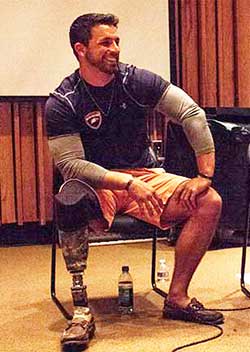
Sgt. Taylor Urruela
Wounded veteran Sgt. Taylor Urruela visited the Johnson State campus Oct. 28. Urruela is one of three veterans profiled in the new PBS series “Coming Home,” which depicts veterans’ experiences adjusting to civilian life after military service.
I was able to sit down for a few moments with Urruela during his visit to ask him about his experiences and his transition back to civilian life.
“My family was in it before me, my father, my grandfather and also just a desire to serve. To continue what those had done before me,” Urruela said about his interest in enlisting as an infantryman. “I saw ‘Saving Private Ryan’ at a very impressionable age and seeing what they went through motivated me to join.”
During his first deployment in Iraq, in October of 2006, just two days before he was scheduled to return home, two roadside bombs hit the Humvee that he was travelling in. This resulted in numerous injuries and the death of his commander. Urruela was one of the three soldiers who lost a limb in the aftermath of the explosion.
At first, he underwent 35 surgeries to try to repair his right leg, but ultimately he decided to go through with amputation of the limb. “I never really comprehended cutting it off, until I saw these guys that were missing their limbs and the things they were able to do,” Urruela said, “For a week I didn’t sleep, just researching and worried and all that but after it was done, it was done. I’ve never thought twice about it and by far made the right decision because I would never be able to do what I do now without it.”
Urruela is referring to the organization that he has been involved with and co-founded. VETSports is a non-profit that aims to help wounded veterans through organized sports.
“To help with the transition. To get veterans together, the hardest part is getting them together, finding that common ground and that common ground for us is sports and community involvement,” Urruela said, explaining the goals of the organization. “The sports side of it is to rebuild the camaraderie to help continue that bond of military service and the community involvement, for them to be able to help other people but also to see that there are others out there dealing with equal if not worse stuff.”
At first, Urruela found it difficult to transition back to life at home. “It’s all a process,” he said. “It was very difficult in the beginning and difficult throughout, but very enlightening. I’ve been able to get out of it stronger in the other end.”
As Urruela would soon discover, however, the transition from combat to civilian life proved far more difficult than he had originally anticipated. “You transition to a civilian world not expecting it to be very different and then come to find out you lose the support structure, you lose that purpose and drive, and when you move to a new community, it’s hard to meet other veterans. It’s hard to have that camaraderie and that bond.”
Despite the difficulties adjusting to civilian life, Urruela has found satisfaction and meaning in his new work. “I’ve been able to help people and find success. It’s absolutely been everything I’ve wanted it to be,” Urruela said.
Even through all the hardship Urruela has endured, he stands firmly behind his decision to enlist. “For me, from an early age up until I enlisted, it’s all I wanted to do. I wanted to serve. I wanted to fight in combat,” Urruela said passionately. “I’d do it over and over again. Whether it meant losing my leg or whatever. It’s something that means a lot to me. It’s something I wear with pride.”
Although Urruela has a physical injury that is apparent to the eye, he explained that other lasting impacts can be harder to deal with. “Traumatic brain injury and post-traumatic stress disorder sometimes are even more debilitating than the physical aspect. You do physical therapy, and you’re good to go. There’s not really any mind physical therapy.”
Many soldiers often have difficulty dealing with these conditions since they are trained not to let emotion inhibit their ability to complete a task or mission. This can be troublesome to veterans who are trying to cope with psychological conditions like post-traumatic stress disorder when they return home. Urruela’s way of coping was to continue his selfless acts by aiding others. “Continuing to serve through the non-profit, helping children with disabilities, children that are worse off, other veterans that are worse off, really helps me to put into perspective how lucky I am,” Urruela said.
Urruela has goals for the VETSports organization he co-founded: “I want to make VETSports the new VFW (Veterans of Foreign Wars) where veterans turn to get together and do organized events.”
By chance, Urruela moved into a neighborhood in Tampa, Fla., that happened to be where the widow and son of his friend and commander, Major David Taylor, live. At first the proximity was troubling for him. “For about three or four years I couldn’t even see Jake because he looks a lot like his father,” he said. “When we first got hit, he was just a baby so he didn’t have any distinguishable looks. So a couple years later it was really difficult for me to go through that. But when I finally got out of my own crap, now it definitely one hundred percent pulled me forward. It’s a very meaningful relationship, to be able to see him grow and also to appreciate that I can spend time with him whereas his father can’t. I can kind of fill in and do as best I can to do what his father would do. We’re just buddies, I go watch him play sports and he definitely brings me up.”
Urruela has used his injury to help others. He continues to serve his country even though he is unable to serve in combat. Along with the growth of VETSports, Urruela plans to get his personal training certification to rehabilitate veterans and disabled children and also finish his degree in creative writing.


